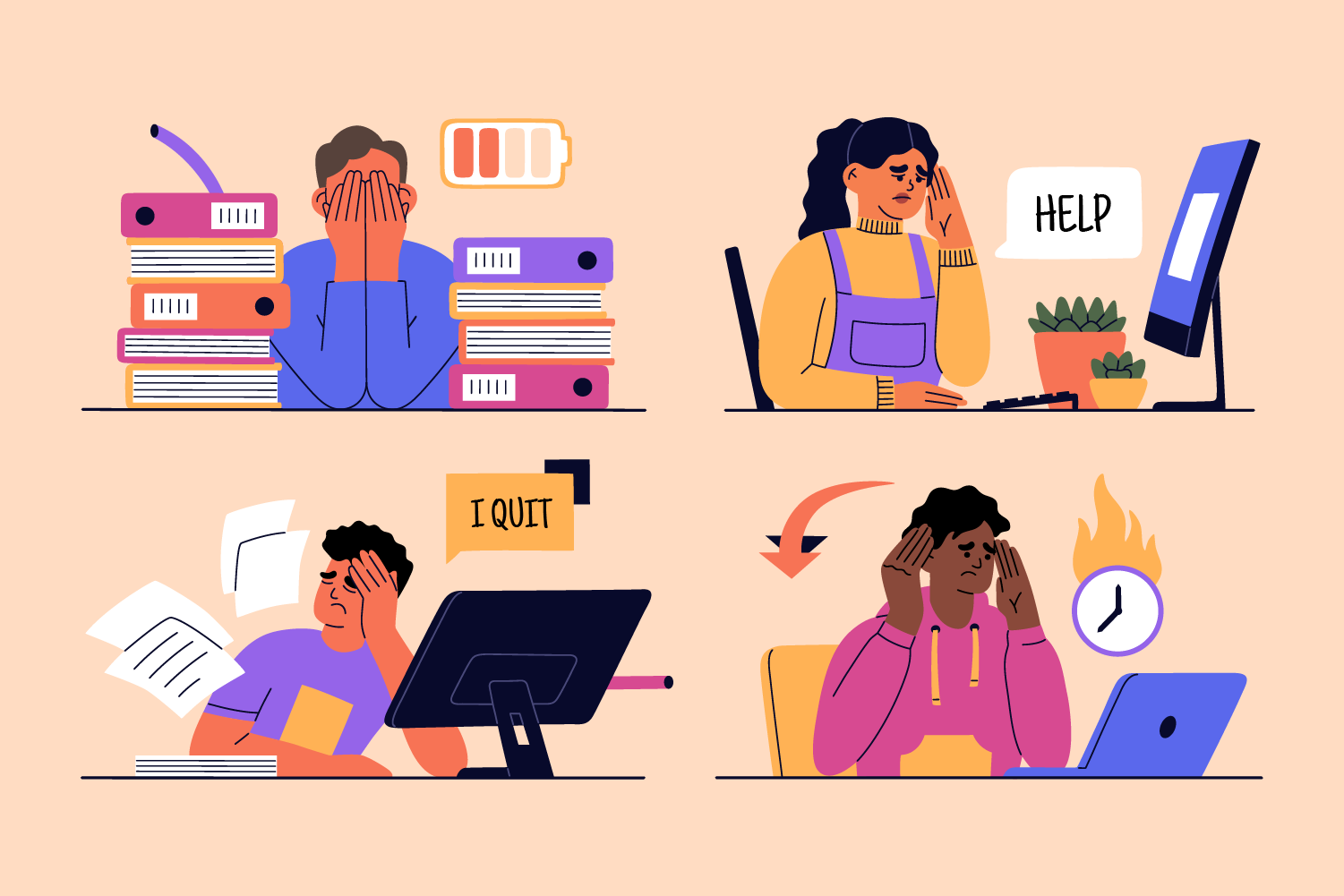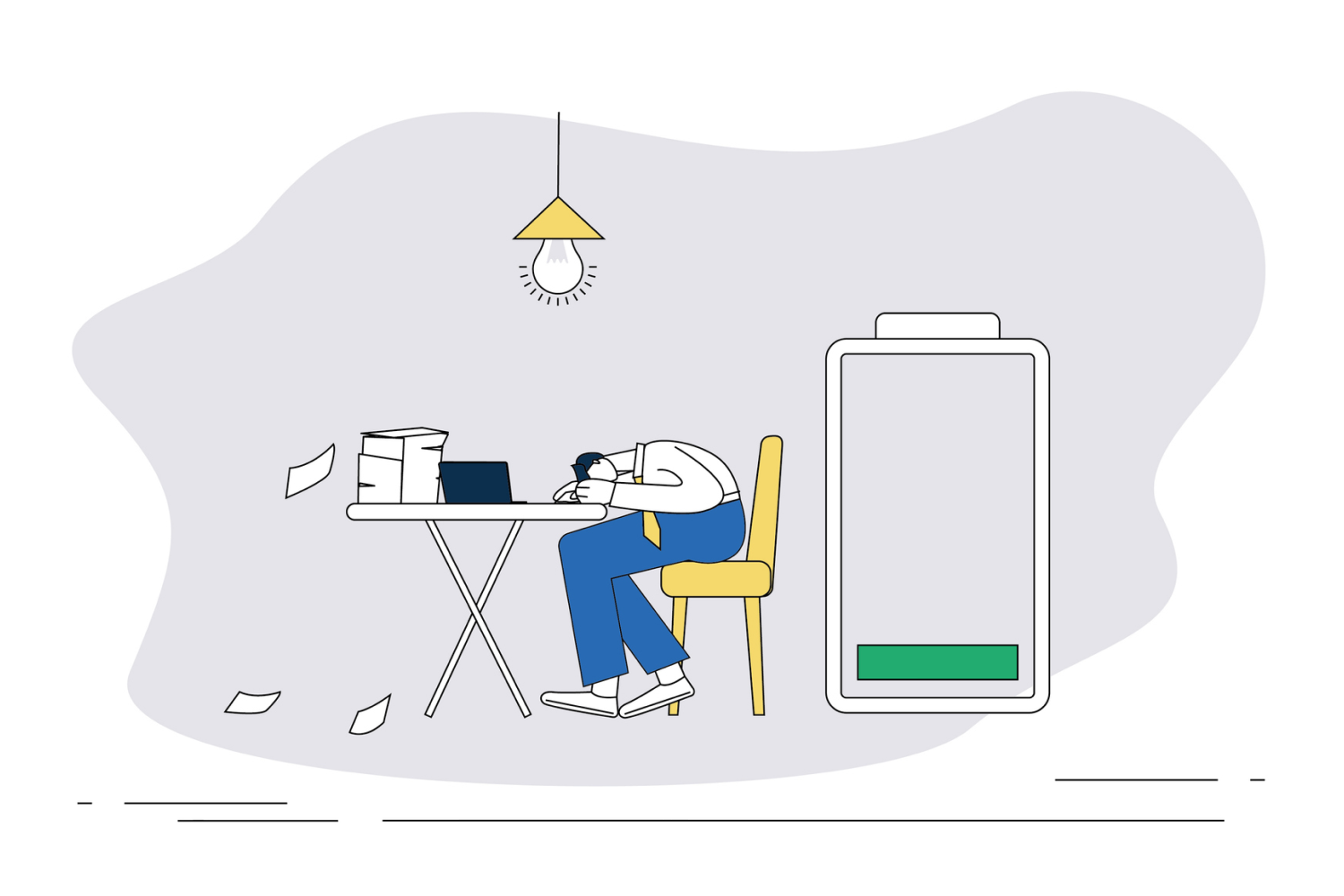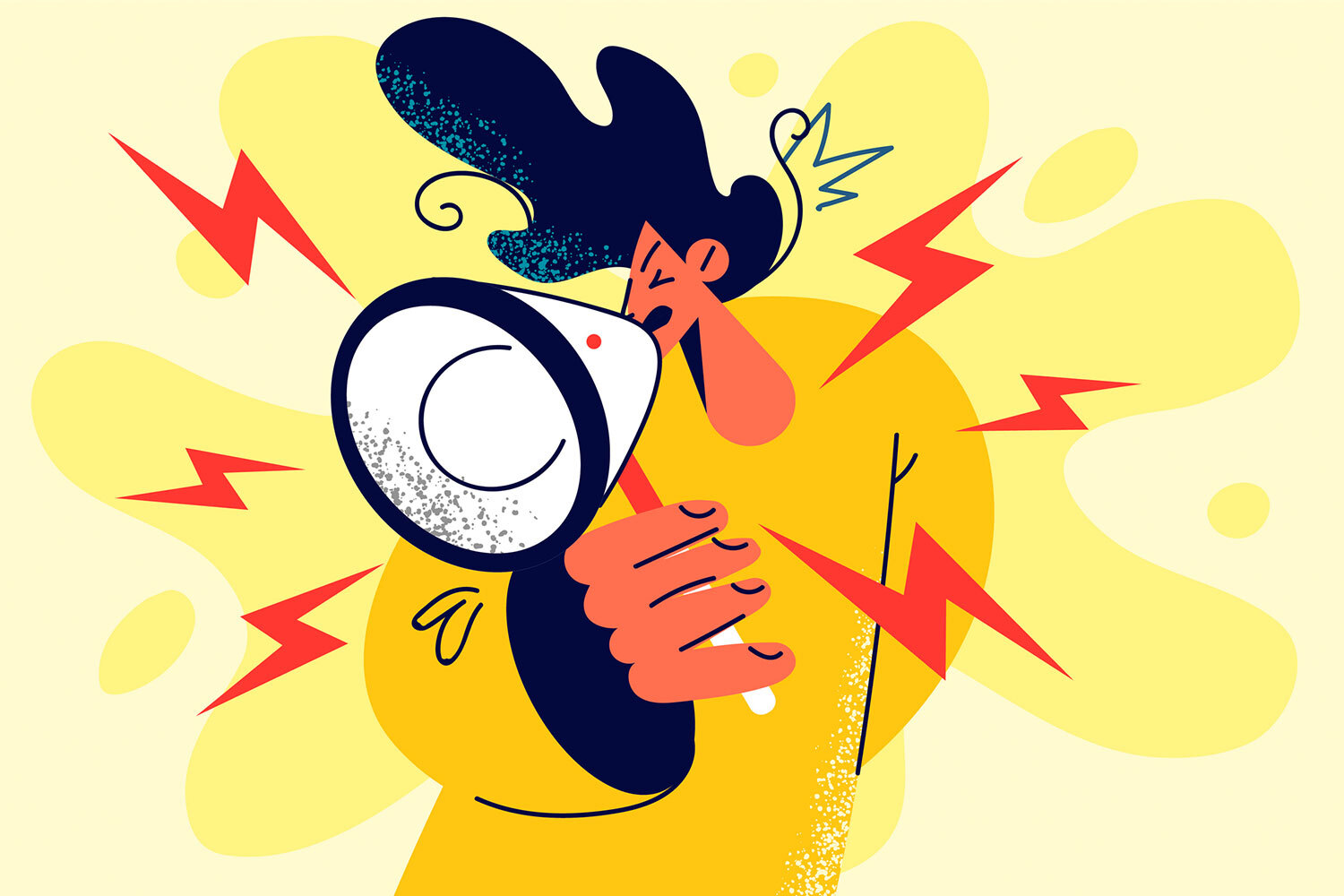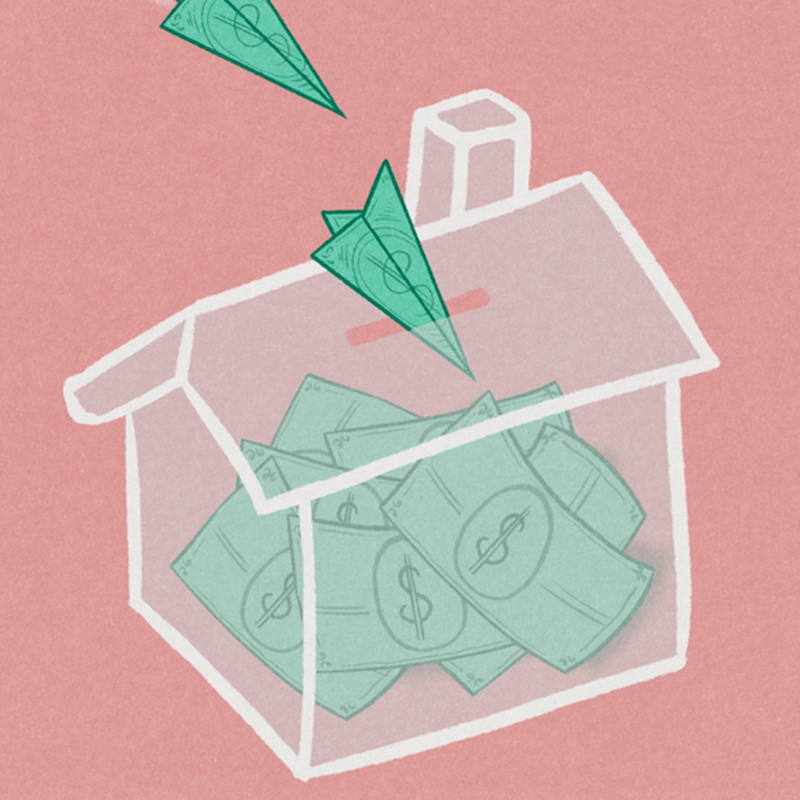Feeling Stressed? Here’s How to Take a Mental Health Leave From Work

Canadian workers are not alright. A 2023 report from Human Resources Canada magazine found that 64 per cent of Canadians polled described their position as “very stressful” or “moderately stressful.” And, about a third have felt depressed because of work.
With stress so commonplace, more and more employees are seeking leaves of absence due to mental health. “When people contact me these days about concerns about their ability to go on a disability leave, it’s more often than not because of mental health,” says Lior Samfiru, a Toronto-based employment lawyer with Samfiru Tumarkin. The pandemic worsened peoples’ wellbeing, and Samfiru says that even five years ago, he didn’t have as many inquiries from clients wanting to take mental health leaves.
Related: Can Your Boss Actually Demand You Return to the Office?
The pandemic also led workers to re-prioritize mental health. Katharine Coons, the national senior manager of workplace mental health at the Canadian Mental Health Association, says that workers are no longer seeing mental wellness as a nice-to-have but as a need-to-have, adding that “employees are looking to work at organizations that prioritize psychological health and safety.”
So if you’re experiencing burnout, you might be considering if you should you go on a stress or mental health leave. But how do you take a mental health leave of absence from work in Canada? Here’s what to know.
What is a mental health leave of absence?
Mental health leaves are just like any other medical leave. Just like you would take a leave of absence if you broke your hip, if you can’t work because of your mental wellbeing you can take a mental health leave. Canadians, regardless of which province they work in, are entitled to sick leave of any kind, for as long as medically necessary, says Samfiru.
Related: How I Stopped Romanticizing the Millennial Obsession With Productivity
Some workplaces do offer a number of paid mental health days as part of their compensation package, but a mental health leave of absence is different: It’s for an extended period of time and you likely won’t be paid your salary during your time away from work.
Most importantly, a leave of absence—whether it’s for mental health or physical health—must be corroborated with a doctor’s note.
Is there anything I can try before I take a stress leave?
The decision to take a stress leave or mental health leave is very individual and might depend on things like finances, your personal support network, family circumstances and job security. But before you decide to take time off, Coons recommends opening up a conversation with your boss and talking through some of the stressors you’re experiencing. “Try to best understand what resources, flexibility and accommodation might be available within your organization,” she says.
Coons adds that common mental health accommodations include flexible scheduling, changes in supervision, additional technology or software use, modifying job duties or expectations and adjusting workspace or location.
If you get a doctor’s note that lays out your accommodation needs, your workplace should meet that accommodation. “You’re not asking for a favour—you’re asking your employer to do what they’re legally obligated to do,” says Samfiru.
What are the steps I need to take to go on mental health leave?
If you do decide to go on leave, the first step is meeting with your doctor. Once you and your health care provider come to an agreement on how long you should be on mental health leave, all you have to do is present your doctor’s note to your employer. “You’re not asking for permission. You’re advising your employer that, pursuant to your doctor, you’re going to be off. And that’s it,” says Samfiru.
You don’t have to disclose why you’re going on leave. Your employer cannot demand an explanation, nor can they request you do an independent medical exam to confirm your symptoms. (It’s a violation of the Human Rights Code for your employer to deny you accommodations—which includes a leave of absence.)
“Whether it’s a bad back or poor mental health, there’s no requirement that the employer be advised of the reason,” says Samfiru. “The only thing the employer is entitled to know is that the person cannot work for medical reasons and a doctor is confirming that.”
What sorts of compensation and benefits am I entitled to while on stress leave?
When you’re on an extended leave of absence, you likely won’t be paid your regular salary. Your employer also isn’t required to continue providing your health benefits, but Samfiru says that most do, at least for a period of time, depending on the workplace.
Employees on leave can access employment insurance benefits (EI), which provide about three months of pay. For full-time permanent workers, as well as hourly workers who have been paying into EI (you can check your pay stubs to see if it’s been subtracted), your employer just needs to submit a record of employment. People who are self-employed might also be able to access EI if they’re registered for the program.
What should I do while on mental health leave?
Above all else, focus on getting better. “I would suggest taking the time to disconnect from the stresses of work and work on supporting your mental health,” says Coons. This might look like seeing a therapist, spending time with friends and family and resting.
While you should disconnect as much as possible, Samfiru recommends checking in with your employer periodically throughout your leave. “Every few weeks, send a note saying ‘I’m still here and I’m working on getting better and hope to have an update for you soon.’ Just so they know you’re planning on coming back,” he says.
However, the employment lawyer cautions against telling employers personal medical information while sending an update, which they don’t have a right to. “It can be an invitation for the employer to nitpick,” he says. “Less is more when it comes to telling your employer about your leave.”
Is my job guaranteed when I come back from mental health leave?
While an employer isn’t obligated to take you back after your leave, “what is guaranteed is that the employer has to make all efforts to bring you back,” says Samfiru.
So, if your employer hired someone new to take over your role while you’re on leave, they don’t have to get rid of the new person to bring you back (which often happens when someone returns from a parental leave). Instead, your boss has to “determine if another suitable position exists” for you, says Samfiru. If they really can’t find a way to bring you back, then they might end your employment and you’d be entitled to severance pay.
Can my employer retaliate against me for taking stress leave?
Legally, no. But, in practice, it unfortunately happens. If you feel as though you’re being treated differently or you suspect you weren’t able to come back after your return because you took mental health leave, the first thing to do is to document everything. That might mean getting things in writing and keeping a record of what’s happening by saving emails, messages and any other correspondence with your boss or HR. This will help prove your case if you decide to take legal action. “The Human Rights Code prevents you from being mistreated and discriminated against because of a medical condition, and certainly mental health would apply here,” says Samfiru.
Ultimately, taking a leave of absence for your mental health is just as important as taking a leave for your physical health. And, if it’s doctor’s orders, workers seeking time off to look after their mental health are protected under a suite of human rights and employment laws.
“It’s not up to the employer to assess whether or not your illness is legitimate. It’s up to the doctor,” says Samfiru. “An employer’s job is to simply allow the employee to do what the doctor says.”










